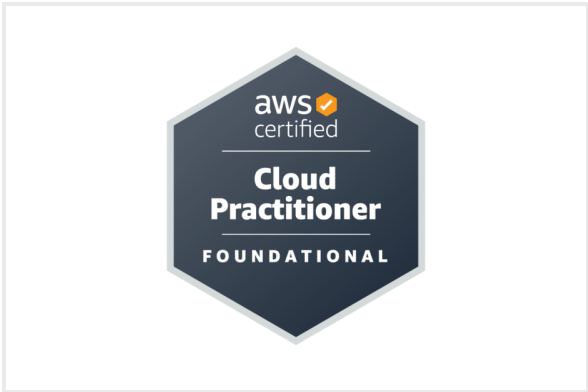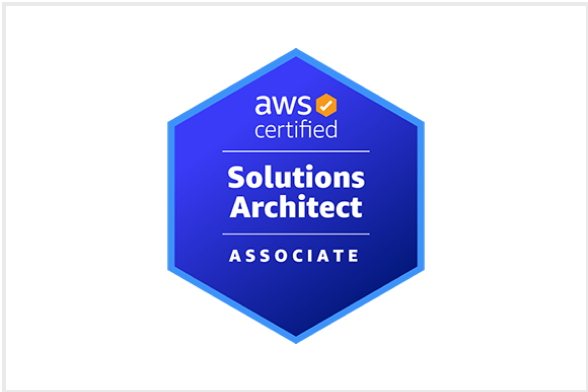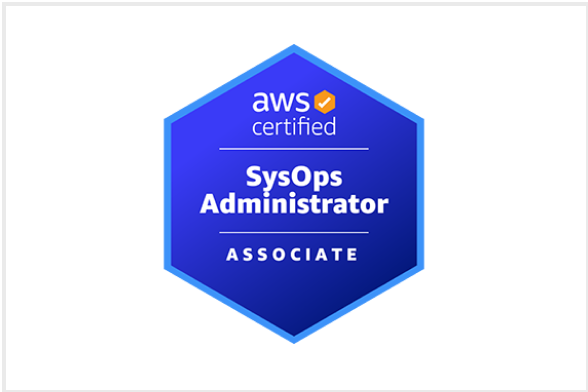SCTP - Cloud Administrator
- Home
- SkillsFuture Career Transition Programme (SCTP)
- SCTP - Cloud Administrator
Cloud Administrator

Cloud administrators play a critical role in managing and maintaining cloud infrastructure, ensuring that it is secure, reliable, and performing optimally. They are responsible for monitoring cloud resources, configuring cloud services, and troubleshooting issues that arise. They also work closely with other IT professionals, such as developers, network engineers, and security analysts, to ensure that cloud systems are integrated and aligned with overall business objectives.
The demand for skilled cloud administrators in Singapore is expected to continue growing, particularly in industries such as finance, healthcare, and government where data security and compliance are critical concerns. Companies are also increasingly seeking professionals with expertise in specific cloud platforms, such as AWS, Azure, or Google Cloud, further driving the demand for specialized skills in this field.
The Infocomm Media Development Authority has projected that the demand for cloud computing services in Singapore will grow at a rate of 23% from 2019 to 2023, creating more job opportunities in the cloud computing industry, including roles such as cloud administrators. Moreover, a survey by Robert Half in 2021 found that 64% of Singaporean CIOs consider cloud computing their top investment priority, indicating a strong emphasis on cloud-based solutions and the need for skilled professionals to manage them. A LinkedIn survey also listed cloud computing skills, including cloud administration-related skills such as cloud architecture, cloud security, and cloud infrastructure management, among the top 10 skills in demand by employers in Singapore in 2020.
All of these data provide robust evidence of the increasing demand for skilled cloud administrators in Singapore, particularly in industries where data security and compliance are critical.
What do Cloud Administrators do?
A cloud administrator is an IT professional responsible for managing and maintaining cloud computing systems within an organization. Their job role includes overseeing the deployment, configuration, and maintenance of cloud infrastructure, ensuring that it is secure, reliable, and performing optimally. They work closely with other IT professionals, such as developers, network engineers, and security analysts, to ensure that cloud systems are integrated and aligned with overall business objectives.
Responsibilities
The responsibilities of a cloud administrator may vary depending on the size and complexity of the organization's cloud infrastructure. However, some common responsibilities of a cloud administrator include:
- Deploying and configuring cloud infrastructure: Cloud administrators are responsible for deploying and configuring cloud infrastructure, such as virtual machines, containers, and storage services. They ensure that the infrastructure is configured correctly, optimized for performance, and aligned with organizational requirements.
- Managing cloud security: Cloud administrators are responsible for ensuring that the cloud infrastructure is secure and compliant with relevant regulations and policies. They manage access controls, implement security measures such as firewalls and encryption, and monitor the infrastructure for security threats.
- Monitoring and optimizing cloud performance: Cloud administrators monitor cloud infrastructure performance, troubleshoot issues, and optimize resource utilization to ensure that the infrastructure is performing optimally.
- Managing cloud costs: Cloud administrators are responsible for managing the costs associated with cloud infrastructure, ensuring that the organization is getting the best value from its investment in cloud technologies.
- Maintaining cloud infrastructure: Cloud administrators maintain cloud infrastructure, including updating software, patching vulnerabilities, and performing backups and disaster recovery.
Average salary

$3,500 - $5,000
Skills Required for this Role
|
Technical Skills & Competencies |
Generic Skills & Competencies |
|
|
Career Support
Career Agility Hub
Enjoy access to NTUC LHUB’s Career Agility Hub (CAH) throughout the SCTP programme. This recruitment platform offers over 100,000 jobs across sectors and levels, along with updates on job fairs and industry events.
Continued Career Support
Tap on career coaching and placement support services provided by NTUC LHUB and its network of partners. Additionally, enjoy continued access to CAH and receive announcements of curated jobs and job fairs via email.
- Singapore Citizens, Singapore permanent residents, and holders of Long-term visit pass plus (“LTVP+ Holders”) who are aged 21 years old and above
- Committed to complete the programme
- At least 21 years old and above.
- Minimum Diploma and above with 1-2 years of relevant working experience
- Be able to speak, listen, read, and write English at a proficiency level equivalent to the Employability Skills Workforce Skills Qualification (ES WSQ) Workplace Literacy (WPL) Level 6
- Be able to manipulate numbers at a proficiency level equivalent to ES WSQ Workplace Numeracy (WPN) Level 6
- Well versed in all Microsoft Office applications, especially Excel, Word, PowerPoint, and Outlook
- Strong communication skills and problem-solving skills
- Ability to multitask
- Ability to work in a team environment
- Maintains high integrity and displays reliability
- Interested participants should apply for the programme
- Shortlisted candidates will be called for a 15-minute face-face or virtual interview
Training methodology

Instructor-led Virtual Training
Lecture and activity-based training with certified Trainers

Online Learning
Self-paced learning via e-learning platforms

Portfolio Building
Create a winning portfolio filled with hands-on projects that will help you shine in interviews.

Mentorship
Your mentor is your partner-in-Project Management. They are instructors and industry practitioners dedicated to your future success.
Duration & learners schedule

Total duration: 2.5 months (full-time) / 5 months (part-time)
List of Courses to Attend
Course Overview
The CompTIA Network+ certification course provides learners with foundational knowledge and skills needed for a career in computer networking. The course covers topics related to network design, configuration, and troubleshooting, such as network topologies, hardware, protocols, services, security, and troubleshooting. It is suitable for those interested in pursuing a career in computer networking or enhancing their knowledge in the field. Upon completion, learners will have a solid foundation in network design, configuration, and troubleshooting, and be able to identify network hardware and implement basic security measures.
Course Objectives
In this course, you will describe the major networking technologies and systems of modern networks, and configure, manage, and troubleshoot modern networks. You will:
- Identify basic network theory concepts and major network communications methods
- Describe bounded network media
- Describe unbounded network media
- Identify the major types of network implementations
- Identify TCP/IP addressing and data delivery methods
- Analyse routing and switching technologies
- Identify the components of a TCP/IP implementation
- Analyse network security
- Implement network security
- Identify the components of a WAN implementation
- Identify the components used in cloud computing and virtualization
- Identify the components of a remote network implementation
- Manage networks
- Troubleshoot network issues
Course Overview
The CompTIA Linux+ course is designed to provide learners with the foundational knowledge and skills required to use and manage the Linux operating system. The course covers various topics related to Linux, including system architecture, installation, package management, command-line interface, devices, filesystems, shell scripting, and system administration tasks.
Upon completion of the course, learners will have acquired the foundational knowledge and skills required to use and manage the Linux operating system effectively. They will be able to install, configure and manage Linux-based systems, understand the command-line interface, manage Linux filesystems, develop proficiency in scripting, and manage system services.
Course Objectives
In this course, students will learn the background knowledge and skills necessary to administer, troubleshoot, install or maintain Linux. Concepts covered include:
- System Configuration
- The Command Line Interface
- Scripting Basics
- Network Settings and Services
- System Security
Course Overview
This course is for students who are preparing to take the CompTIA Security+ certification exam SY0-601. This course is aimed towards IT professionals who install and configure systems to secure applications, networks, and devices; perform threat analysis and respond with appropriate mitigation techniques; participate in risk mitigation activities; and operate with an awareness of applicable policies, laws, and regulations.
Course Objectives
In this course you will learn how to:
- Confidently explain and define an array of security vulnerabilities
- Navigate the complexities of the secure system and network design
- Explore the defensive measures like PKI, firewalls and IDS
- Implement robust identity management and access control
Course Overview
The AWS Cloud Practitioner Essentials course is an introductory level course designed to provide participants with a foundational understanding of the AWS Cloud. The course covers the core AWS services, including computing, storage, databases, and networking. By the end of the course, participants will have a good understanding of the AWS Cloud and how to use it to solve real-world business problems. They will also be prepared to take the AWS Certified Cloud Practitioner exam.
Course Objectives
Upon completing this course, participants will be able to:
- Summarize the working definition of AWS
- Differentiate between on-premises, hybrid-cloud, and all-in cloud
- Describe the basic global infrastructure of the AWS Cloud)
- Explain the six benefits of the AWS Cloud
- Describe and provide an example of the core AWS services, including compute, network, databases, and storage
- Identify an appropriate solution using AWS Cloud services with various use cases
- Describe the AWS Well-Architected Framework
- Explain the shared responsibility model
- Describe the core security services within the AWS Cloud
- Describe the basics of AWS Cloud migration.
- Articulate the financial benefits of the AWS Cloud for an organization’s cost management
- Define the core billing, account management, and pricing models
- Explain how to use pricing tools to make cost-effective choices for AWS services
Course Overview
This certification & training course covers the fundamentals of building IT infrastructure on the AWS platform. Students learn how to optimize the AWS Cloud by understanding how AWS services fit into cloud-based solutions. In addition, students explore AWS Cloud best practices and design patterns for architecting optimal IT solutions on AWS, and build a variety of infrastructures in guided, hands-on activities. The course also covers how to create fledgling architectures and build them into robust and adaptive solutions.
Course Objectives
In this course, you will learn how to:
- Make architectural decisions based on AWS architectural principles and best practices
- Leverage AWS services to make your infrastructure scalable, reliable, and highly available
- Leverage AWS Managed Services to enable greater flexibility and resiliency in an infrastructure
- Leverage AWS Managed Services to enable greater flexibility and resiliency in an infrastructure
- Use the Well-Architected Framework to improve architectures with AWS solutions
Course Overview
In this certification & training course, you will learn how to create automatable and repeatable deployments of networks and systems on the AWS platform. We will explore AWS features and tools, and best practices for configuring and deploying systems.
Course Objectives
- Understand the AWS infrastructures as it related to system operations such as the global infrastructure, core services and account security
- Use the AWS Command Line Interface, and understand additional administration and development tools
- Manage, secure, and scale compute instances on AWS
- Identify container services and services available for serverless computing
- Build virtual private networks with Amazon VPC
- Configure and manage storage options utilizing the storage services offered with AWS
- Monitor the health of your infrastructure with services such as Amazon CloudWatch, AWS CloudTrail and AWS Config
- Manage resource consumption in an AWS account using tags, Amazon CloudWatch, and AWS Trusted Advisor
- Create and configure automated and repeatable deployments with tools such as AMIs and AWS CloudFormation
Course Overview
This course is designed for beginners to Azure who want hands-on experience with our offerings. No scripting skills are required as we primarily use the Azure portal and CLI to create resources. By completing this course, students will gain confidence to take other role-based courses and certifications, such as Azure Administrator. The course includes lecture, demonstrations, and hands-on labs and also helps prepare for the AZ-900 exam.
Course Objectives
- Define cloud computing and its key advantages
- Explain public, private, and hybrid cloud models
- Explain IaaS, PaaS, and SaaS cloud services
- Identify core Azure architectural components, such as regions, geographies, and resource groups
- Identify usage cases for Azure core services and products, such as virtual machines and storage
- Identify usage cases for Azure solutions, such as the Internet of Things and Machine Learning
- Identify what Azure management tools are available such as Azure PowerShell and the CLI
- Describe Azure policies and role-based access control
- Describe usage cases for Azure Monitor and Azure Service Health
- Describe privacy, compliance, and data protection standards
- Use an Azure subscription
- Plan and manage costs
- Explain Azure support options
- Describe Azure SLAs
- Explain Azure service lifecycles
Course Overview
Learn how to manage your Azure subscriptions, secure identities, configure virtual networking, and more. This course covers topics such as managing network traffic, implementing storage solutions, scaling virtual machines, and monitoring your solution.
Course Objectives
- Assess infrastructure models and deployment options suitable to business context
- Outline overall architectures, topologies, databases, and design policy of cloud-based environment
- Evaluate cloud infrastructure designs and performance based on business expectations
- Implement web apps and containers
- Back up and share data
Course Overview
Learn how to foster innovation and growth in your organization by creating customer-centric products and services through the CENTRIC framework. This course is designed for learners in management and supervisory roles.
Course Objectives
- Use the CENTRIC framework to promote customer centric innovations
- Develop assumptions and discover insights from data
- Develop a blueprint to address challenges and opportunities
- Develop concepts and prototypes to meet customers’ requirements
- Test concepts and prototypes by collecting and analysing data metrics
Course Overview
The prevalence of corporate data breaches is increasing at an alarming rate. And knowing that data breaches are preventable, it is no wonder that enterprises are searching for experienced system auditors to neutralize possible threats to their systems. This is where the Certified Information Systems Auditor (CISA) comes into play.
If you want to be an IT auditor, or are one now and don’t have a certification, Certified Information Systems Auditor (CISA) is for you. CISA Certified Information Systems Auditor – is world-renowned as the standard of achievement for those who audit, control, monitor and assess an organization’s information technology and business systems.
Course Objectives
After completing this course, you will be able to gain a comprehensive, up-to-date, and in-depth knowledge of the following 5 job practice domains:
- Use the FIRE framework to drive workplace improvements and innovation
- Set the challenge with root cause analysis
- Create the solution through collaboration with stakeholders
- Validate solutions by testing and analysis
- Decide on options by reviewing the effectiveness and potential constraints
Certifications








- AWS Certified Solutions Architect – Associate
- SysOps Administrator – Associate
- Microsoft Certified Azure Administrator - Associate
|
Course Fee and Government Subsidies |
||
|
|
Before GST |
After GST* |
|
Full Course Fee |
$19,600.00 |
$21,364.00 |
|
Singapore Citizens and Singapore Permanent Residents aged 21 years and above 1 (70% funding) |
$5,880.00 |
$6,409.20 |
|
Singapore Citizens aged 40 years and above 2 (after 90% funding) |
$1,960.00 |
$2,489.20 |
|
Singapore Citizens eligible for Additional Funding Support 3 (after 95% funding) |
$980.00 |
$1,509.20 |
*GST payable for all funding-eligible applicants: $529.20 (As per SSG’s policy, the GST payable is calculated based on prevailing rates of 9% after the baseline funding subsidy of 70%).
- Base Subsidy - Eligible Singapore Citizens and PRs aged 21 years and above can enjoy subsidies up to 70% of the course fee.
- Mid-career Enhanced Subsidy (MCES) – Eligible Singapore Citizens aged 40 and above can enjoy subsidies up to 90% of the course fee.
-
Additional Funding Support (AFS)- Eligible Singapore Citizens that meet at least one of the following eligibility criteria can enjoy subsidies up to 95% of the course fee:
- Long-term unemployed individuals (unemployed for six months or more); or
- Individuals in need of financial assistance – ComCare Short-to-Medium Term Assistance (SMTA) recipients or workfare Income Supplement (WIS) recipients; or
- Persons with Disabilities
Funding Eligibility Criteria
- Trainee must be a Singapore Citizen, Singapore Permanent Resident, or LTVP+ Holder aged 21 years old and above
- From 1 October 2023, attendance-taking for SkillsFuture Singapore's (SSG) funded courses must be done digitally via the Singpass App. This applies to both physical and synchronous e-learning courses.
- Trainee must achieve at least 75% attendance for each module
- Trainee must pass all prescribed tests/ assessments and attain 100% competency.
- NTUC LearningHub reserves the right to claw back the funded amount from trainee if he/she did not meet the eligibility criteria.

